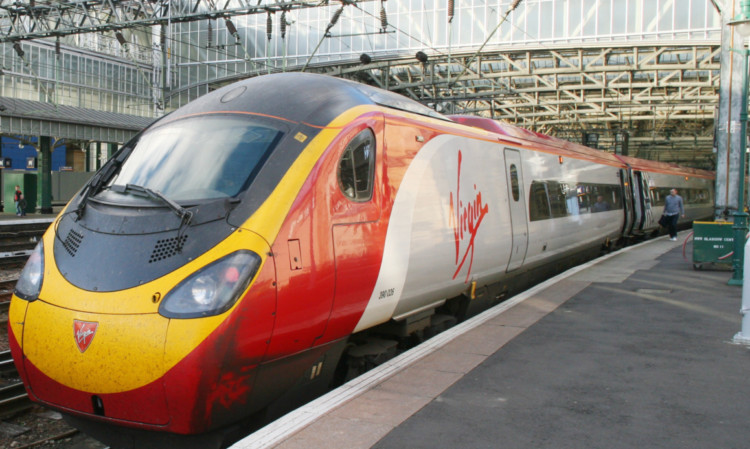West Coast operator Virgin Rail Group has been handed the right to continue to run one of the major transport links between Scotland and London, just months after almost being stripped of the job.
The rail group, a joint venture between Perth-based transport giant Stagecoach and Richard Branson’s Virgin empire, could continue its tenure over the franchise until early 2018 following a short-term award.
Officials at the UK Government’s Department for Transport signalled the move early yesterday, almost two years after a catalogue of errors in Whitehall saw a long-term contract initially awarded to rival FirstGroup before being scrapped altogether.
Virgin plans to work with Network Rail to look at remodelling and upgrading Carstairs station, potentially eliminating one of the route’s major bottlenecks and improving capacity and travel times.
The deal will also see the conversion of more than 20 of the first-class carriages currently operating on the line to standard accommodation. The disproportionately high amount of first-class seating has long been a bugbear for passengers.
Virgin said it expected to generate profits similar to the levels enjoyed by other similar medium-term UK rail franchises, subject to a profit-sharing agreement with DfT.
The total value of the deal will depend on the UK’s overall economic performance, with share payments between DfT and Virgin varying according to GDP levels.
Stagecoach chief executive and Virgin co-chairman Martin Griffiths said the new contract was “a great deal for customers, communities and taxpayers” and also hailed a well-run franchising system.
The award comes as a boost just a few days before Stagecoach is expected to reveal its preliminary results for the financial year to the end of March next week.
“Millions of passengers will benefit from thousands of extra seats, plans for new services and free super-fast connectivity,” Mr Griffiths said.
“At the same time, the taxpayer will receive a significant increase in income, helping support the Government’s record investment in Britain’s rail network.”
The directly-awarded deal is the sixth contract to be granted by the Department for Transport since it relaunched its franchising regime early last year.
The overhaul followed 2012’s bungled award of the West Coast agreement to Aberdeen-based First and the costly scrapping of that decision just weeks later and recommended the staggering of longer-term franchise awards to make them more manageable.
The DfT said the deal which will begin on Sunday and run until March 2017, or a year later if an additional 12-month option is taken up would bring passenger benefits worth a total of £35 million, including better wifi connections, station upgrades and new services including direct routes connecting Shrewsbury and Blackpool to London.
Virgin will also invest £2.5m to improve the interior of its Pendolino trains, and spend £2.75m on improving catering facilities.
Transport Secretary Patrick McLoughlin said it was crucial that the UK Government took steps to improve services on a much-used route which provides a “vital artery” between Scotland and London.
“This is further proof of our commitment to get the best deal for passengers and taxpayers with Virgin set to pay more than £430m to run the franchise,” he said.
Virgin said it had made “huge progress” since taking over the West Coast franchise in 1997, doubling passenger numbers to 32 million per year, cutting journey times and investing a total of £2bn in its rolling stock.
Rail unions reacted angrily, saying the franchising regime benefited firms’ profits and shareholders rather than passengers.
